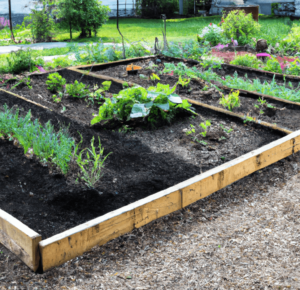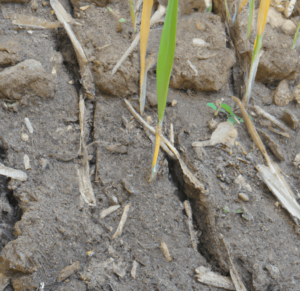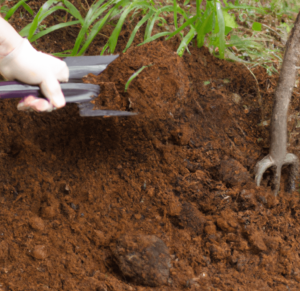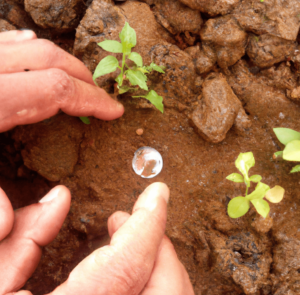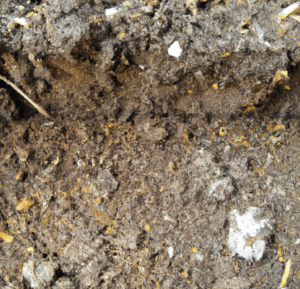The soil is a complex ecosystem that supports plant growth and health, not just a place where plants can thrive. The soil microbes, which include bacteria and other microorganisms and are essential to plant health and productivity, are one of the ecosystem’s key elements. The role of soil microbes in plant health, as well as their significance in agricultural systems, will be discussed in this gardening guide.
The Foundation of Soil Biology: Soil Microbes
To understand the role of soil microbes in plant health better, let’s look at soil biology first to better understand soil structure and its importance in plant health. Microorganisms known as soil microbes dwell in the soil and include bacteria, fungi, protozoa, and nematodes. They are crucial for preserving the equilibrium of the soil ecosystem and are important for the health and productivity of plants. These bacteria help to control the pH, water-holding capacity, and nutrient availability of the soil in addition to converting organic matter into nutrients that plants can take.
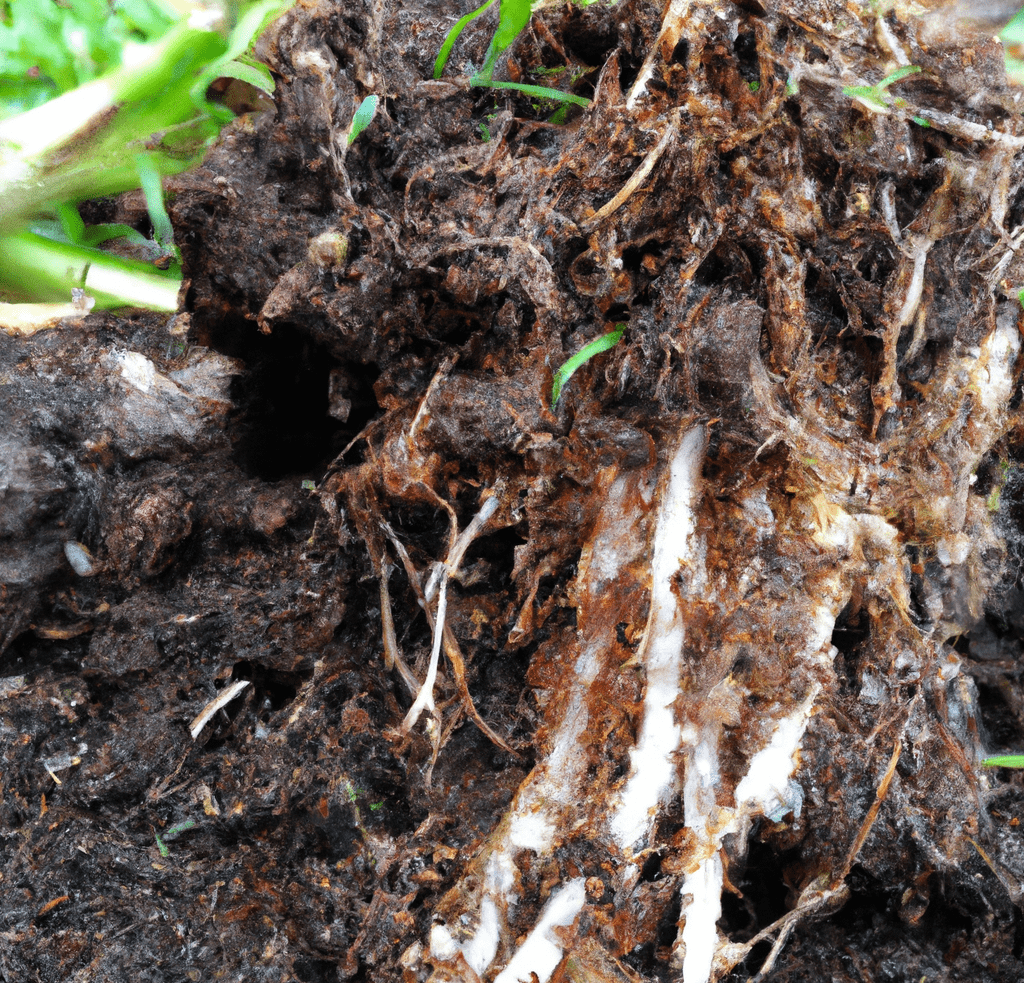
The Role of Soil Microbes in Plant Health
Plant productivity and health are significantly impacted by microorganisms in the soil. They are in charge of converting organic stuff into nutrients like nitrogen, phosphorous, and sulfur that plants can take. They also aid in balancing the pH of the soil and enhancing soil structure, which increases water retention and aeration and permits plants to absorb more nutrients and water.
Additionally, soil bacteria are essential for preventing disease. While some bacteria create chemicals that inhibit the growth of infections, others produce antibiotics that aid in the treatment of plant diseases. This promotes plant health and lessens the need for pesticides and fertilizers that include chemicals.
Types of Soil Microbes and Their Functions
As you learn about the role of soil microbes in plant health, here are the different types of microbes:
- Symbiotic Bacteria: Some bacteria associate with the roots of plants to manufacture energy-rich chemicals in exchange for important nutrients for the plant. Rhizobial (the soil surrounding plant roots) bacteria are crucial for fixing nitrogen in the soil and enhancing soil fertility. By transforming atmospheric nitrogen into a form that plants can utilize, they play a crucial part in the nitrogen cycle. Some bacteria coexist harmoniously with plants, fixing nitrogen in legume root nodules, for instance.
- Fungi: Fungi are widespread in soil and are essential to the health of the soil in a number of ways. For instance, mycorrhizal fungi develop symbiotic connections with plant roots that improve the plant’s capacity to absorb water and nutrients from the soil. Other fungi contribute to the breakdown of organic debris and the return of nutrients to the soil.
- Soil Microbes: The breakdown of organic matter and release of nutrients necessary for crop growth depends on soil microbes, which include bacteria, fungi, and other microorganisms. They also aid in enhancing soil aeration, decreasing compaction, and enhancing soil structure.
- Protozoa: Single-celled organisms known as protozoa consume bacteria and other soil-dwelling microorganisms for food. They are crucial in maintaining the balance of soil microbial communities and nutrient cycling. They liberate nitrogen, phosphate, and other nutrients that plants may utilize by eating bacteria.
For the development of sustainable agricultural practices and the assurance of food security, understanding the many types of soil microorganisms and their roles is essential.
The Benefits of Soil Microbes for Plants
For agricultural systems to be successful, soil microorganisms and plants must work together in symbiosis and you can learn how to create and maintain a soil food web in your garden later on. Now, the role of soil microbes in plant health has various advantages because they can decompose organic materials for nutrients. These nutrients become accessible to plant roots through a process known as mineralization, which promotes better development and higher harvests.
By enhancing soil’s ability to retain water and lowering soil erosion, soil microorganisms also aid in enhancing soil structure. Additionally, soil bacteria are essential for plants’ disease defense. Soil microorganisms can defend plants from pathogens and create a competitive environment that inhibits their growth by colonizing the roots and surrounding soil. As a result, there may be a need for fewer chemical inputs and agricultural systems’ overall ecological health may be improved.
How Soil Microbes Improve Nutrient Uptake and Promote Root Growth
The role of soil microbes in plant health includes nutrient uptake and growth promotion. Soil bacteria aid in improving nutrient uptake by plant roots by decomposing organic materials and liberating mineral nutrients. This may lead to better crop resilience, higher yields, and greater plant growth.
In addition to enhancing nutrient uptake, soil microorganisms also encourage root growth by fostering an environment that is conducive to root growth. They can make more water available in the soil, allowing plants to absorb water more effectively. This may lead to roots that are stronger, healthier, and better able to take in the nutrients they need to grow.
How Soil Microbes Help to Protect Plants From Disease and Pests
In addition to providing a stable foundation for plants, the soil is teeming with life and the role of soil microbes in plant health is more prominent than ever. Protozoa, nematodes, fungi, bacteria, and fungi are all a part of the intricate soil biology that supports plant health. These bacteria are essential for defending plants against disease and pests.
The rhizosphere is the thin layer of soil that surrounds plant roots. The majority of the soil’s microorganisms reside here and interact with the roots of plants. The bacteria in this region compete with one another for nutrients and available space while also cooperating to build a barrier that protects the plant.
For instance, specific bacteria can create antibiotics that are effective against pathogens that injure plants and cause sickness. Others may establish symbiotic connections with plant roots in which they trade nutrients for sugars produced by the plants. Through resource competition with pathogenic bacteria in the rhizosphere, these symbiotic interactions can also aid in the protection of the plant.
To keep plants healthy, soil microbial variety is essential. A diverse population of microbes that are capable of carrying out a variety of tasks will be present in healthy soil, offering a strong defense against disease and pests. Soil health strategies like crop rotation, adding organic matter, and refraining from using hazardous pesticides can all assist to maintain the diversity and abundance of soil bacteria.
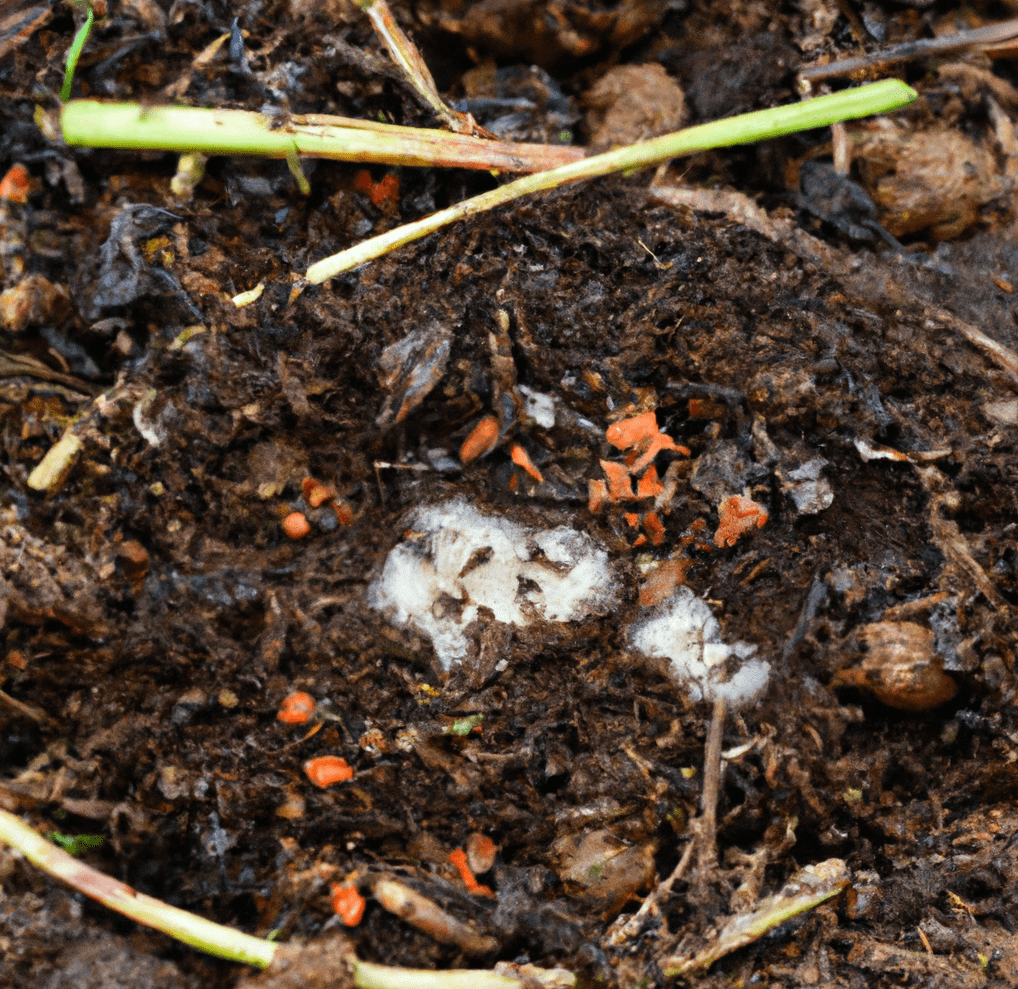
The Impact of Human Activities on Soil Microbes
The healthy microbial populations that occur in the soil can be significantly impacted by human activities including deforestation, urbanization, and intensive agriculture which shows just how important the role of soil microbes in plant health is.
Although the bacteria and other microbes in the soil are essential for sustaining soil fertility, human activity can readily upset these communities. For instance, using chemical fertilizers and pesticides can change the pH of the soil and diminish the variety of bacteria, which will result in a decline in the health of the soil.
The long-term health and productivity of the soil can be supported by techniques like sustainable agriculture, composting, and reduced tillage that can encourage the formation of a diversified and robust soil microbial population.
Negative Impacts of Human Activities Such As Overuse of Chemicals and Monoculture on Soil Microbes
Negative effects on soil microorganisms, including symbiotic bacteria and fungi, have been caused by human activities such as the excessive use of chemicals and the development of monoculture crops. Now that you know the role of soil microbes in plant health in nutrient cycling and contributions to soil structure, fertility, and structure, soil microorganisms are essential to sustaining healthy soil.
The delicate balance of soil microbes can be upset and their populations reduced by excessive use of chemicals like pesticides and fertilizers. This may result in less fertile soil and decreased crop output. Monoculture crops, which include cultivating the same crop across a considerable region, may also be harmful to soil bacteria. This kind of agriculture has the potential to reduce the diversity of soil microorganisms, deplete soil nutrients, and raise the incidence of diseases that are transmitted through the soil.
Human activity’s effects on soil bacteria have far-reaching effects on both agricultural output and the health of our ecosystems as a whole. It is crucial to control these effects and promote sustainable farming methods that preserve and protect soil bacteria.
How to Maintain and Improve Soil Microbial Diversity Through Practices Such As Crop Rotation, Cover Cropping, and Adding Organic Matter
In order for agricultural systems to be healthy and fertile, taking care of the role of soil microbes in plant health is important. The following are some of the top techniques for preserving and enhancing soil microbial diversity:
- Crop Rotation: Growing various crop varieties in the same field in a certain order is known as crop rotation. This procedure lessens the spread of diseases that are transmitted through the soil and enhances soil health. Additionally, it gives the soil a variety of nutrients and organic debris, fostering a diverse community of bacteria.
- Cover Cropping: Planting a crop on a field in between the primary crops is known as cover cropping. This crop aids in preventing soil erosion, lowering weed development, and enhancing soil fertility. Additionally, the cover crop serves as a source of organic matter, promoting the diversity of soil microbes.
- Compost, manures, or green manures are examples of organic matter that can be added to the soil to help with soil structure, water retention, and nutrient availability. Additionally, it gives soil bacteria a food source, promoting their diversity and proliferation.
The Potential of Soil Microbes in Modern Agriculture
In soil biology and agriculture, soil microbes, including bacteria and other microorganisms, the role of soil microbes in plant health is essential. They interact with plant roots and affect plant development, well-being, and absorption of nutrients.
Modern agriculture depends on this interaction between soil bacteria and plants because it can raise crop yields, soil fertility, and plant resistance to pests and diseases. Growing interest has been shown in the ability of soil microbes to increase agricultural output in recent years.
For instance, certain bacteria can fix nitrogen from the atmosphere and make it available to plants, enhancing soil fertility. By generating hormones that promote root growth, other bacteria can enhance plant growth. Additionally, soil organisms can aid to control soil pH and enhance soil structure, which will facilitate root penetration and nutrient uptake by plants.
The Potential of Using Soil Microbes in Modern Agriculture, Including As Bio-Fertilizers, Biopesticides, and as a Way to Improve Crop Resilience to Climate Change.
The potential for employing soil microbes to boost plant resilience to environmental challenges, increase crop yield, and decrease reliance on synthetic fertilizers and pesticides has been discovered via the study of he role of soil microbes in plant health:
- Natural bio-fertilizers are soil microbes, such as bacteria and fungi, which can develop symbiotic relationships with plant roots and supply vital nutrients to plants. Biofertilizers can enhance soil health and lessen the need for synthetic fertilizers, which can be harmful to the environment and soil bacteria.
- To manage pests and diseases, biopesticides derived from soil microbes can also be employed in place of synthetic pesticides. This strategy can lessen the detrimental effects of pesticides on soil bacteria as well as the danger of target pests developing pesticide resistance.
- Plants may adapt to changing climatic conditions, such as rising temperatures and water stress brought on by climate change, with the aid of soil bacteria. Plants can become more resilient and better able to withstand environmental shocks by encouraging a healthy soil microbiome, which will increase crop productivity and increase the stability of agricultural systems.
The full potential of soil microbes can be unlocked in sustainable and effective agricultural systems with further research and advancement in the field of soil biology.
Bottom Line: The Role of Soil Microbes in Plant Health
The biology of the soil and the health of plants is greatly influenced by soil microbes, including bacteria and other microorganisms which is why the role of soil microbes in plant health is researched often.
A diversified population of soil microorganisms can enhance soil fertility, spur plant growth, and advance general plant health in agricultural systems. Plant health depends on soil bacteria because they support soil fertility, plant growth, and general plant health.
As farmers, gardeners, and landowners, we may actively contribute to the promotion of soil microbial diversity by minimizing tillage, composting, and using fewer pesticides and other hazardous chemicals. By doing this, we may contribute to preserving the health and vitality of our planet’s soil, plants, and environment.
FAQs on The Role of Soil Microbes in Plant Health
What is the role of soil microbes in plant health?
The health and productivity of plants depend on the bacteria and other microorganisms in the soil. They aid in regulating the pH, soil’s ability to hold water, and its availability of nutrients. They also contribute to the prevention of plant disease by converting organic materials into nutrients that plants can absorb.
How does soil biology work?
The study of soil’s living creatures, such as bacteria, fungi, protozoa, and nematodes, is known as soil biology. Understanding the function of soil bacteria on plant health requires knowledge of soil biology.
What are the various types of soil bacteria and what do they do?
Symbiotic bacteria, fungi, soil microbes, protozoa, and others are among the several forms of soil microbes. They have a number of roles in preserving the equilibrium of the soil ecosystem and promoting the health and production of plants.
What advantages do soil bacteria provide for plants?
For agricultural systems to succeed, soil microorganisms and plants must collaborate in symbiosis. The beneficial effects of soil bacteria on plant health include the breakdown of organic matter for nutrients, improved water retention, stimulation of root growth, and defense against disease and pests.
How do nutrient uptake and root growth are improved by soil microbes?
By breaking down organic matter and releasing mineral nutrients, soil microorganisms improve plant roots’ ability to absorb nutrients. By creating an environment that is favorable for root growth, increasing the amount of water accessible in the soil, and enhancing plant water absorption, they also promote root growth.
How do soil bacteria aid in defending plants against disease and pests?
Soil microorganisms, such as bacteria, fungus, protozoa, and nematodes, are crucial for protecting plants against disease and pests by colonizing the roots and surrounding soil and by fostering a competitive environment that stunts the growth of diseases.


